[This was written the morning after I had been honored to participate in a certificate awarding ceremony hosted by the Centre for Peace and Justice at the home offices of their Refugee Studies Unit located 1km from the Ukhiya Rohingya refugee camps south of Cox’s Bazar, Bangladesh. This is a partial draft of what I plan to say to the Women’s Peace Cafe attendees in a couple days from now in Dhaka.]
Thoughts on the denormalization of marginalization
I want to use an example to facilitate our understanding of the denormalization of marginalization in action, and that example is on the logo behind me, the Centre for Peace and Justice (CPJ), and the way that this organization is functioning.
Every day CPJ is a perfect example of allyship1. Not only is it a great example of organizational allyship, every individual within the organization functions as a positive ally. What that means is that they are treating everyone with dignity and everyone the same. This is not just one’s persons opinion. I heard this exact sentiment from the many of the refugees and Bangladeshi nationals I have talked to in during my visit to Cox’s Bazar.
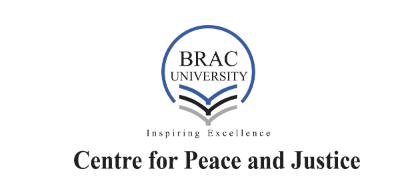 I rarely call out any individuals, but in this case I will. My close CPJ colleague Azizul and I will be walking down the street and he will be making a point, saying ‘he or she’ when talking about some kind of action that could be done by either a male or a female. That is, he is being gender inclusive not just in front of an audience of males and females, but in private conversation with another person, in this case me. He is normalizing the act of gender neutrality, and subtly fighting a misogynistic assumption that only males have agency.
I rarely call out any individuals, but in this case I will. My close CPJ colleague Azizul and I will be walking down the street and he will be making a point, saying ‘he or she’ when talking about some kind of action that could be done by either a male or a female. That is, he is being gender inclusive not just in front of an audience of males and females, but in private conversation with another person, in this case me. He is normalizing the act of gender neutrality, and subtly fighting a misogynistic assumption that only males have agency.
Another example includes what happened a couple days ago at the CPJ Refugee Studies Unit down near the Ukhiya Rohingya refugee camps, Kutupalong. We had an incredibly beautiful certificate awarding ceremony that included learners both from the host community -Bangladeshi nationals- and from the refugee camps, Rohingya refugees.
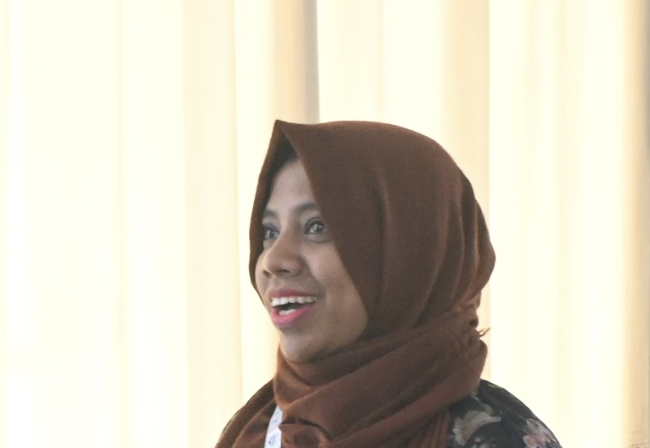 Leading off and acting as master of ceremony for the Certificate Awarding Ceremony was a female, Tamanna Siddika. By her actions taking the lead she was modeling the fact that women can be in positions of authority and take command when appropriate.
Leading off and acting as master of ceremony for the Certificate Awarding Ceremony was a female, Tamanna Siddika. By her actions taking the lead she was modeling the fact that women can be in positions of authority and take command when appropriate.
CPJ was, by putting her in that position, acting as an organizational ally, and as she was speaking and organizing the flow of the program, she was modeling women’s empowerment. And so, both the males and females in attendance were being communicated with, not overtly and being hit over the head, but rather subtly, making a point that was reaching those attending more at a subconscious level. Instead of just talking about gender inclusivity CPJ was modeling such.
A second example of organizational allyship is that literally sitting side by side were Bangladeshi nationals and Rohingya refugees, both groups having had strong co-equal representation both in our online course (for which this was the Certificate Award Ceremony) and in this in-person ceremony.
The event was filled with short speeches of appreciation by many of our learners, stirring vocal performances, and hundreds of post-ceremony photographs. That learners took the time and effort to be at this ceremony is the true appreciation they have for CPJ and its staff earned through now 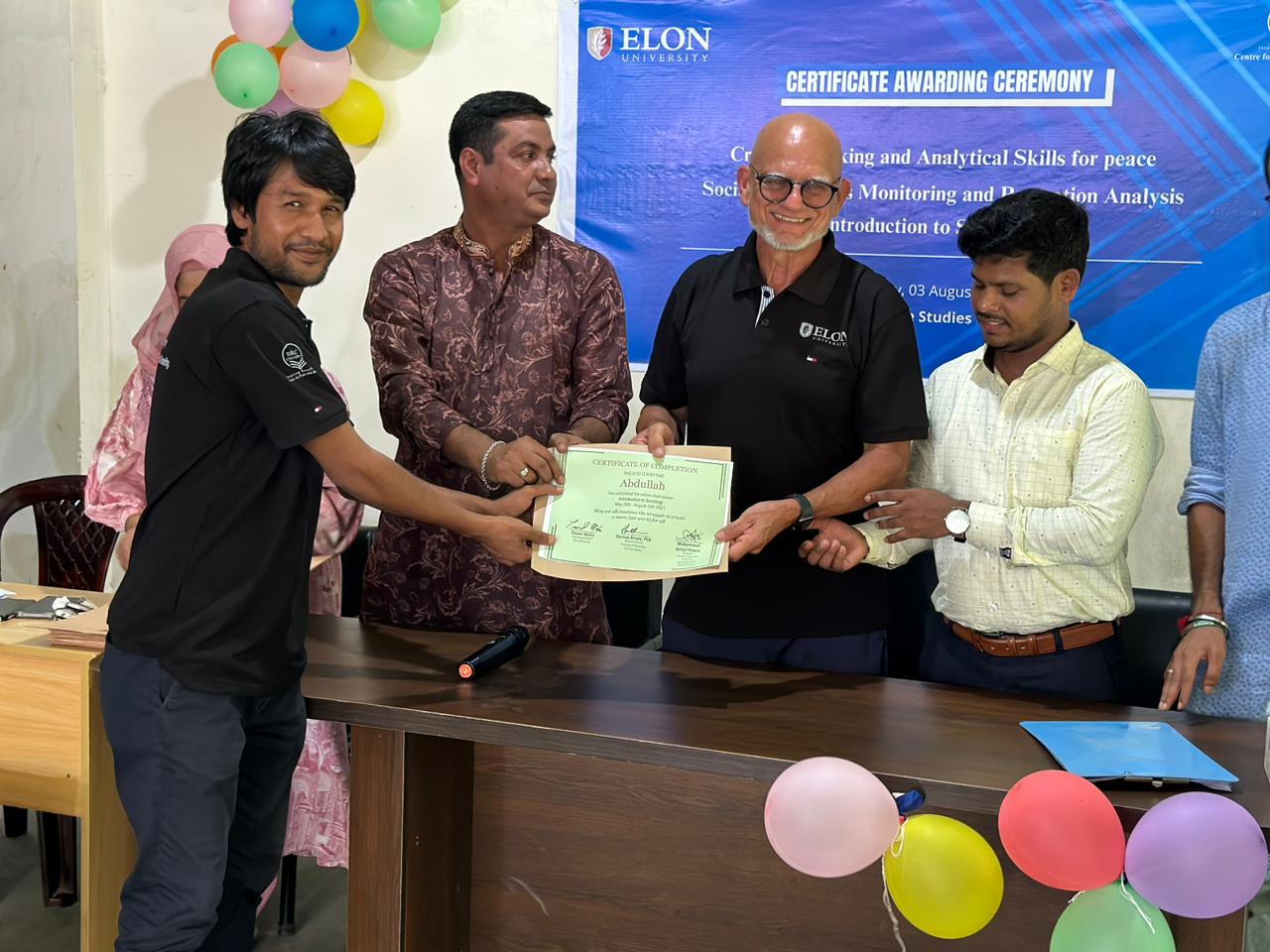 years of exemplary allyship.
years of exemplary allyship.
Both individuals and organizations function better when they have accumulated substantial social capital, and earning this capital through allyship actions has been part of the CPJ brand from the beginning.
Denormalization of marginalization
And so, we fight the normalization of marginalization by engaging in the denormalization of marginalization with our actions that sometimes are conscious and explicit, but many times are subconscious and implicit, having become a matter of social habit. What I meant when I said that the world needs to hear women voices now2 is, among other things, the idea that women need to speak out whenever they can or take progressive actions whenever they can, not just for themselves, but for the model they present to other women around them, and other men around them as well.
As a parent, I know, and perhaps some of you know as well, or will realize when you do become parents, every moment is a teachable moment, and every moment you are around your child, they are learning from you, absorbing your views and behaviors just like a sponge, soaking up every nuance. Indeed, most of the communication that happens between humans is passive and subconscious. Our way of being-in-the-world can be never fully hidden from others. If you truly believe in dignity for all in your heart, you will act toward others as such, showing them that you honor their right to dignity, and treat them in a way that will facilitate them feeling a sense of dignity. Based on the idea of the looking-glass self, they in turn will see themselves now as more worthy and hence be empowered to treat not only themselves in a more dignified fashion, but others as well.
Just as the normalization of marginalization took a long time to fully take hold with all of the heads of the Hydra, the denormalization of marginalization will also take a long time and will be the product of an infinite number of individual actions.
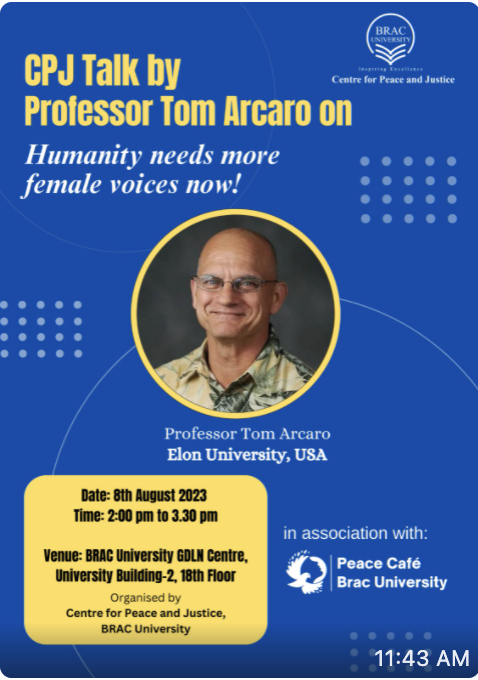 But we must keep in mind that we are all members of organizations, some formal, some informal. At the household level, we can model the denormalization of marginalization by subtly addressing toxic othering in our interpersonal behavior. When we engage with others at work we can model the denormalization of marginalization with our workmates, both with peers and those with higher or lower statuses.
But we must keep in mind that we are all members of organizations, some formal, some informal. At the household level, we can model the denormalization of marginalization by subtly addressing toxic othering in our interpersonal behavior. When we engage with others at work we can model the denormalization of marginalization with our workmates, both with peers and those with higher or lower statuses.
And as members of organizations we can find ways to address those policies or organizational cultural practices which add to the normalization of marginalization and suggest changes in policies and procedures, and ways of being around the workplace, addressing any toxic othering embedded within the corporate culture. Confronting toxic othering is something which comes from the heart and comes after a personal acceptance of basic human rights for all, acceptance of the fact that we are all one human family.
Bending the moral arc toward justice
The moral arc of the universe is indeed long, and I do believe bends towards justice. But this bending toward justice is not an accident. It is the cumulative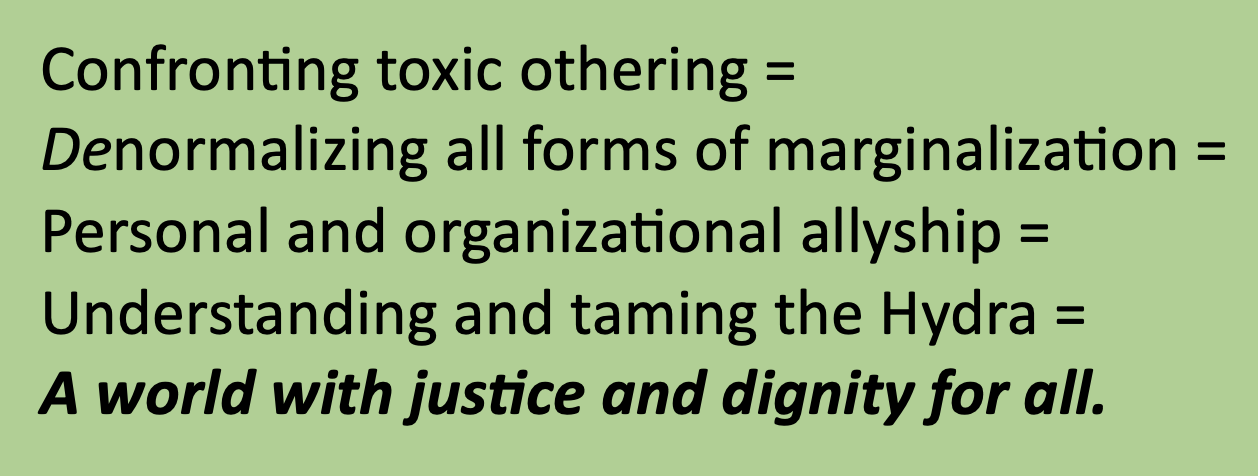 impact of millions of individuals each taking thousands actions who have committed first consciously and then subconsciously to the basic humanitarian ideals, that no human is more human than any other human. Let us join together and make the world a place imagined by the authors of the Universal Declaration of Human Rights. Let us work together to close the gap between the real in the ideal, between how things are -a world full of toxic othering- to how things can and should be, a world filled with justice and dignity for all humans.
impact of millions of individuals each taking thousands actions who have committed first consciously and then subconsciously to the basic humanitarian ideals, that no human is more human than any other human. Let us join together and make the world a place imagined by the authors of the Universal Declaration of Human Rights. Let us work together to close the gap between the real in the ideal, between how things are -a world full of toxic othering- to how things can and should be, a world filled with justice and dignity for all humans.
1 “Allyship is a lifelong process of building and nurturing supportive relationships with underrepresented, marginalized, or discriminated individuals or groups with the aim of advancing inclusion.” My extended definition emphasizes the fact that organizations and governments can also act as allies.
2 “Humanity needs more female voices now!” is the title I am using for my talk with the Women’s Peace Cafe in Dhaka.


 Follow
Follow